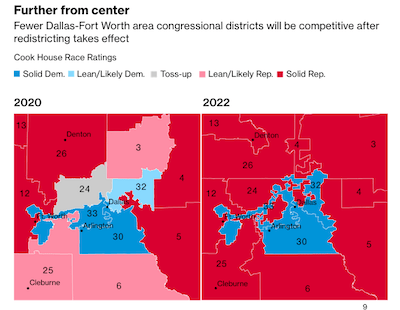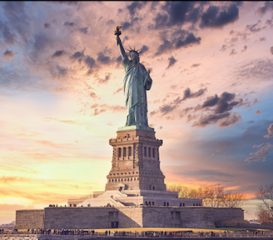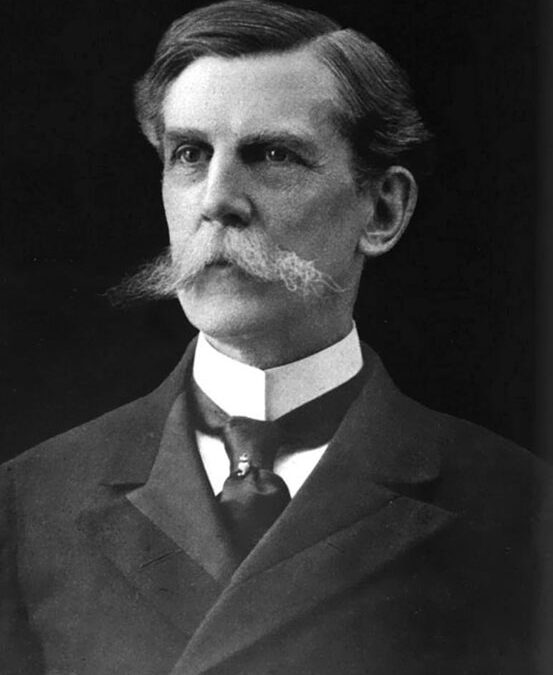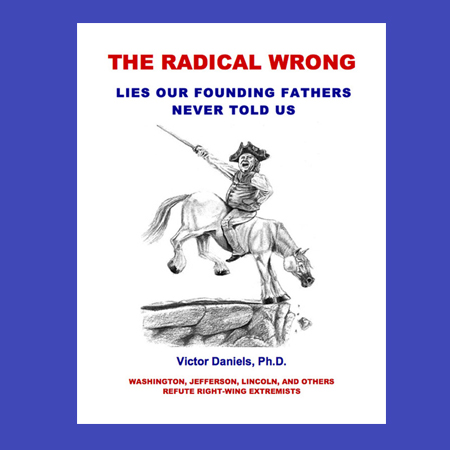
Cultures, Environment, Politics, Uncategorized, Women & Gender
Last Sunday, May 14, 2022, crowds in more than 380 U.S. cities were in the streets protesting the intention of four and possibly five justices on a less-than-supreme court to support the anti-abortionists’ forced pregnancy agenda. Two of those justices have no business being there at all. They’re are there illegitimately due to Hard Cold Right wing political machinations by Mitch McConnell and Humpty Trumpty, but you know that story already.
Approximately three fourths of the people of this country support every woman’s right to decide whether she wishes to be pregnant or not. That’s not surprising since that right to self-determination was recognized by Argentina in 2020 and Mexico in 2021. But travel to Mexico or Argentina is too pricey for some of the women who would be hit by a U.S. ban.
The leak” of the draft opinion to jettison Roe vs. Wade has been the subject of great hand-wringing by right-wingers who decry the “loss of trust” in the Supreme Court as a result — especially by Justice Clarence Thomas whose wife is a rabid ultra-rightist partisan and whose own record on the court makes it clear that he should never have been appointed to it. I think that’s backwards. Keeping a potential ruling secret until it’s mposed on a nation bitterly imposed to it is one more anti-democratic act in which a few impose their personal will upon the nation. That’s oligarchy! Leaking had the effect of making possible nationwide debate by all concerned and affected citizens. Isn’t that what democracy is supposed to do? Indeed, shouldn’t any policy this huge and consequential be floated for public deliberation before any draft opinion is even written? That’s democratic. Decisions by a small cabal on a court that has been packed by the actions of an ultra right-wing Senator and President are not.
Thomas worries about the reputation of the Court due to the leak. The Court’s reputation already smells like a broken cessool. In 2000 it chose to ignore the will of the people and installed someone as president who was decisively defeated. Thomas’ own reputation is at the bottom of the cesspool (along with Alito’s.) The powerful reality is that the reputation of the court would be damaged many times more by abandoning Roe than by any leak. Jettisoning democracy is a much worse error than leaking an opinion.
Unfortunately the Hard Cold Right Republican establishment doesn’t give a wooden defecation about democracy despite all rhetoric to the contrary. They want control. In this case it’s men controlling women. It’s the old story of “keep them barefoot, pregnant, and in the kitchen.” Yes, there are some women fellow travellers who support that — apparently including Justice Amy Conan-Barrett —although she still has a brief window of time in which to redeem herself, to vote to keep Roe and escape the fate of being a traitor to her sex— but as the Texas vote legislature’s vote to pay a $10,000 bounty to people who rat on friends and neighbors who have orperform abortions shows clearly, just a few. The Texas legislation was supported by 59 men and 10 women (all Republicans.)
Women are every bit as entitled to be in charge of their own bodies and lives as men. And the people of the U.S. ought to be entitled to have a Supreme Court that is not empowered to legislate
from the bench by imposing its own minority views on the nation. If this Court does not come to its senses and leave the Roe vs. Wade ruling intact, the nation should rethink the Court’s structure and process—and include recusal measures in which someone outside the court can challenge conflicts of interest and require recusal by any justice so implicated. Kow-towing to a political ideology which says the few can impose their will on the many ought to be one ground for such a requirement of recusal.
In the meantime, I hope people all across the country will throw out of office and replace every elected official who supports any and every forced pregnancy agenda. Or it’s another nail in the coffin of democracy. As past Justice Salia put it, a democracy in which the people’s will is repeatedly ignored by a committee of unelected lawyers is not a democracy at all.
From the consciousnessandculture.com blog.

Cultures, Politics, Spirit, Uncategorized
STABBING DEMOCRACY TO DEATH
In an authoritarian nation like Russia a question is how close to totalitarianism, as under Stalin and under Hitler’s Germany, the authorities will go. Putin has taken steps to make it more so with his ever-greater censorship and moves to control everything in the media that does not follow his party line.
The United States has long paid at least lip service to democracy and viewed itself as a defender of “freedom.” Rather limited freedom for many of the people. It’s obvious in the patently antidemocratic “electoral college” for Presidential elections, with the result that two of the four presidents “elected” since the turn of the millennium had millions of votes fewer than their opponents. One political party has steadfastly and successfully opposed all attempts to eliminate the electoral college.
But in the years 2021 and 2022 the project of defeating democracy has taken a great leap forward. One political party U.S. is intentionally, systematically and methodically moving forward with a project to eliminate democracy and take authoritarian power for itself. This was visible to the entire world when the January 6 rioting mob stormed the Capital and tried to put the loser of even the electoral college vote into power.
That was just the visible tip of the iceberg. The greater damage, which may ultimately result in turning the U.S. into a fully authoritarian state with nothing but a fig-leaf of deceptive words that imply that it is a so-called democracy is the Republican project to 1) throw as many people as possible who look like they won’t vote Republican off the voter registration rolls, and 2) create electoral districts that assure them of victory at every level from state legislatures to the presidency regardless of what most voters want. While many people who are not Republicans realize this is happening, few have recognized it as the powerful threat to democracy that it is.
Computer databases and algorithms now make it possible to create electoral districts that are so bizarrely constructed to favor one party that no sane person would look at them and deny it. The “redistricting” or construction of new electoral districts that occurs every ten years after the census was never meant to be a political tool. It was meant to readjust districts to accord with population changes. But it’s a political tool now, wielded mainly by the Republican Party.
“Hey,” the Republicans say, “the Democrats are doing it too.” Yes—in the few states where they control the state office that does the redistricting—in retaliation for what the Republicans are doing in most of the country. But even in some of the states where the Democrats have control they have pushed successfully to set up nonpartisan commissions to carry out redistricting—such as in California. The results are radically different from the crazy-quilt districts of politically partisan redistricting. Those districts are typically constructed with a few simple lines. Any unprejudiced person looking at them would conclude that they are sensible. Any unprejudiced person looking at 2022 politically motivated districts would conclude that they’re just plain nuts.
The probable result is electoral victories for Republicans that reflect the will of a minority of the people and that disenfranchise many citizens. In other words, less democracy. Add that to the less democracy that comes from the systematic attempt to “cleanse” the voter rolls of as many probable non-Republican voters as possible. In other words, less democracy yet. That’s on top of the already anti-democratic electoral college.
Oh, and there’s also the matter of stacking the Supreme Court with political partisans instead of justices who have a history of impartial interpretation of the laws—partisans who are all too willing to “legislate from the bench.” Republican party legislators accuse the Democrats of that, but the evidence that they’re projecting their own dishonesty and hypocrisy is overwhelming.
Is all that the country we want? It’s what we’re moving toward.
I don’t love Democrats. I think many, and the party, are misguided in significant ways. I’d like to see other parties have a chance. I’d like to have electoral procedures that make that more possible, such as instant runoff voting. If I could set up my own party, it would be neither Democrat nor Republican. Beyond that, I might prefer no parties altogether. George Washington did, speaking again about how the “spirit of party” was a tragically negative influence that deterred democracy.
But as a minimum, there are four basic steps that could set the country back on a path toward more democracy rather than less. They are,
1. Nonpartisan drawing of electoral districts everywhere. Congress could require this.
2. Automatic registration to vote of every person at birth or naturalization. Denmark does this effectively.
3. Adopt Costa Rica’s Supreme Court procedure of having a rotating pool of justices with the requirement that any sitting justice, upon challenge (not upon his or her own volition), must be recused from any case where there is any conflict of interest and be replaced for that case with another justice from the pool.
4. Eliminate the electoral college in presidential elections—or at a minimum, require all states to apportion electors proportionally, as a few do now, rather than on a winner-take-all basis.
That’s a start. Unless we minimally do those four things, our nation is only a pretense of a democracy.
<<<<>>>

Cultures, Politics, Uncategorized
Never before has a war been so thoroughly photographed and documented as Putin’s invasion of Ukraine—the largest war in Europe since the end of World War II. As a result real events there can’t be papered over or denied as they often are by one side or both sides in most wars.
Seldom has an invasion been so obviously and clearly the doing of one person. History records Genghis Khan, Napolean, Hitler, and Stalin. Now we can add Putin. The past week heard President Joe Biden finger Putin by name, calling him a “butcher” and saying he should not remain in power.
Poor little verbally abused Vladimir acted grievously injured. How dare that nasty Mr. Biden call bombing hospitals, schools, kindergartens, apartment buildings and refugees trying to avoid getting killed the actions of a “butcher”? Even some of Biden’s European allies said that it was not nice for Mr. Biden to talk that way.
Really? At the very moment when Russian airplanes, cruise missiles, tanks and artillery are blasting away at Ukrainian cities and reducing Maruipol, to rubble, it is not nice to use the word butcher, or to suggest that the dictator who ordered the war and each day orders it to continue should be removed? (Especially since he called for the government of Ukraine to be replaced.)
Correct me if I’m wrong, but I think that Biden’s words did not physically injure or kill even one person. If we had an observer recording the invasion and bombing we could probably identify at least a handful of people who were murdered by Russian military forces during the brief time it took Biden to utter those sentences. The only harm done by Biden’s words was to Putin’s ego.
Putin has called for “an end to the war.” Perhaps it has slipped his memory that it is his troops that have invaded another country. Perhaps he has somehow not noticed that Ukraine has not fired a single shot into Russia, and that the war is entirely and totally a matter of the Russian invasion of Ukraine. Perhaps he has forgotten that there was no war until he ordered the Russian army and air force to invade and bomb Ukraine. Perhaps it has not occurred to him that the war could easily end instantly if he does no more than order Russia’s armed forces to cease fire immediately – stop shooting and bombing – and withdraw from Ukrainian territory. He can do that all by himself. After all, he’s a big boy—isn’t he?
Perhaps also, despite his deluge of words about the dangers posed to Russia by the big bad European military alliance (NATO), he may have conveniently overlooked the fact that the primary reason it exists at all is fear by most European nations that Russia may attack them—a fear well founded in history, and that he has now made terribly obvious is 100% valid today.
The Butcher of Moscow has accused Ukraine’s government of being controlled by “neo-fascists.” Maybe he’s misplaced his mirror—the mirror that would show him that his accusations are projections. Let’s see what the dictionary says. “Fascism: Authoritarianism, totalitarianism, dictatorship, rightism, nationalism. . .” Ah, I think we have almost a definition of the qualities Putin values in his government. One can reasonably suggest that HE IS THE NEO-NAZI in all this. But of course he does not care to look in the mirror.
Little Vladimir apparently wants respect. (Don’t we all?) To be thought of as a Great Man. Really? It’s too late. There is too much video footage and too many photographs which show that he deserves none at all. He may continue to bamboozle the Russian people long enough to keep his grip on power until he dies, but most of the world can see that the Emperor has no clothes. Historians from everywhere but Russia will speak of Putin’s war. Perhaps even of the Butcher of Moscow. He has said that he wishes to be like Peter the Great and Catherine the Great. Indeed—doesn’t he deserve a title too? How about “Vladimir the Small?”
<<<>>>

Cultures, Economics, Featured, Politics, Psychology, Uncategorized, Women & Gender
You’ve probably watched TV news that shows police car chases, murders, muggings, armed robberies, police shootings, and —well, you name the violent crime. At first glance they may seem quite different, but they have one thing in common: The perpetrators in all those categories are almost all male. In fact, pretty near the only category of violent crime in which women show up at all is those that take place in families or with close acquaintances, and even in those the numbers are far smaller for female than for male perpetrators.
If you raise your eyes from those details of the exciting 24/7 news coverage to look at violence in the broader sweep of history, you immediately see that the initiators and leaders of all of history’s great episodes of violence are male. To name just a few: Gengis Khan, many of the Roman Caesers, the Moghul invaders of India, Napolean, Hitler, Mussolini, Stalin—all men, every last one of them. And the generals of their armies? Again, all men. Most women don’t want to send their kids off to die in wars.
The big time financial whitecollar criminals and the legislators who write laws that give the rich brutal economic control over the poor are also mostly male. Looking at economic injustice, most people tend to fixate on the differences between the wealthy and the non-wealthy and blame the former—or if you’re one of the wealthy you probably blame the “agitators” among the workers and the poor. But there too, the primary architects of the injustices are mostly male.
Even the “sociobiologists” who look at gender differences and conclude that “human beings are inherently aggressive” are themselves mostly male. It took me some time to look carefully enough at their research to see that most such investigators included only males in their research study samples. Ah, so! Suddenly the light shines brightly on a fatal flaw in those research designs that scientists call “sampling error.” If a research study which finds that so-called “people” are inherently aggressive has only men as its subjects, then the only “people” it tells us about are men. Although women sometimes take a forceful or even brutal role, on the average men tend not only to be more aggressive, but also to have a stronger drive to dominate, to “be on top.” (This tells us nothing about any particular man or woman.)
It’s not for nothing that the Native American Iroquois Confederacy in Eastern North America gave women’s councils the final power over any decision about whether a tribe would go to war. It saved the lives of a great many young braves, and of the people in other tribes who might have been their victims.
When we apply all this to an analysis of the grave problems that male dominance creates, the clear implication is that if women and men had equal power in making the policies decisions about war and peace, criminal law, and the allocation and distribution of economic benefits, many things would be better. Less violent crime. Less selfish greed enshrined in law. Less war. Less production of weapons of personal destruction and mass destruction. Less of the environmental destruction and pollution that goes along with building and maintainng a huge military machine.
Requiring a feminine as well as masculine perspective in all major decisions would make far more money and resources availble for a whole spectrum of socially and environmentally beneficial purposes instead of building more and more nuclear missiles and bombers and aircraft carriers and submarines and tanks and. . . and . . . and. . .
Can you see it yet? We are so used to the oppression of a society whose every aspect is built on a blueprint of male dominance that most of us don’t see much of it. It’s like a fish swimming in the water. Ask the fish what “water” is and the answer you’d probably get is, “What are you talking about?” Since I’m male it took quite a long time for me to come around to realizing all that. But it’s obvious in many ways, almost everywhere I look.
Some feminist sci-fi and fantasy writing, like The Handmaid’s Tale and other related works, is meant to dramatize male dominance and oppression so well that it can’t be overlooked. But it can also have the effect of causing the reader to think, “Thank heavens things are so much better than that here,” and overlook the many subtle yet powerful forms of sexism that are embedded in numerous ways throughout society. As a blatant example, that we’re still swimming blindly through the dark waters of patriarchy that have led to so much of the cruelty and suffering of the past three thousand years of civilization, you might note the 2021 Texas Republicans’ legislation that offered people ten thousand dollars to sue someone who has an abortion. The legislators who passed that bill were 59 males and 10 females. That’s the naked hand of masculine oppression right there.
“But,” you might object, “what about the 10 females? There are some women who are anti-abortion, and who support other measures that give men power over women too.”
Indeed. There’s even an identified psychological pattern called variously “Identification with the aggressor” and “identification with the oppressor,” in which someone who is beaten down or oppressed feels a little power by identifying with those in control. And just as there are some men who display qualities we tend to call “feminine,” there are also women who have adopted “masculine” qualities—especially in the business world, where they are strongly encouraged and reinforced.
The sleeping giant of female power is beginning to awake. But slowly. Too slowly to stave off disaster on an apocalyptic scale—probably before the end of this century. Some places have realized that and have taken active steps to equalize male and female power in making the big decisions that govern the structure and process of society. Such as, for instance, in Costa Rica where the Constitution requires that an equal number of male and female candidate be put forward for most kinds of electoral seats. I believe that we need to take parallel steps everywhere, all over the world. Rapidy. Waiting for that to happen through a gradual rise in consciousness is just too slow.
I encourage you to look around with alertness to all the potential ways in which a more equal balance of masculine and feminine consciousness, and male and female power and control in our institutions, can lead to a lighter and brighter reality in your personal life, the lives of those around you, and ultimately our world.

Cultures, Economics, Politics
Many who favor laws that prevent communities or counties from governing themselves and their enterprises as they see fit call themselves “Libertarian.” The word has a nice ring, doesn’t it? But most who use it have not considered the fact that it has three radically different meanings. As a result, it’s all too easy to slide back and forth among them as if they’re all the same thing. The three are:
Individual Libertarian. This means that every person is free to do as they wish as long as they’re breaking laws against physically injuring people or property –or not “shouting ‘fire’ in a crowded theater. In a true individual libertarian regime a person can drink booze, smoke weed, fuck anybody who is willing, have total control over their own bodies and reproduction or non-reproduction, or earn their living as a sex worker. Reasonable regulation includes such items as limiting the right to drive after drinking alcohol, and requiring sex workers to have a weekly physical exam to make sure they’re not passing on diseases.
Some apologists for corporate brutality, intimidation, deception, or other misdeeds claim that really they’re doing good because philosophically they’re “libertarians.” Confusing such a viewpoint with an individual libertarian one is like a shell game in which everyone is tricked into thinking the bean is under a different shell than it really is. An individual libertarian philosophy holds that government has no business telling us how to live our lives as long as we don’t harm others people or living beings. For example, “Mr. Conservative” Barry Goldwater was a very strong advocate of women’s control over their own bodies and reproductive choices. That’s an individual libertarian position.
But a Big Business Libertarian outlook is different. It holds that a corporation or other business can or ought to be able to do as it pleases with no oversight or regulation by the community, the city, the state, or anybody else. How strange, since many who hold that view also lobby constantly for government contracts, subsidies, tax incentives, land grants, and anti-labor and union-busting laws. Many actively seek government regulations that will give them a competitive advantage or wedge of entry into some market. An attorney friend of mine who works with vampire corporations and the ultra-rich says, “Their lobbyists are like a plague of locusts. No matter how many subsidies, tax breaks, and concessions they get, every day they’re over at the state capital asking for more –and more—and more.”
The big business libertarian view holds that Wall Street, the big banks, other global corporations, and “the invisible hand of the market” will look out for ordinary people’s interests. Really?
The grain of truth in a business libertarian view (not just big business) that is that even small mom and pop businesses are too often hobbled by an excess of rules, regulations and forms to fill out that don’t help anybody anywhere. The longer a government or business exists, the more of these there tend to be. It’s useful to have periodic reviews to scrap those no longer needed, clean up the rest, and make sure they are all written in language anyone can understand.
Realistic freedom for businesses includes freedom from intimidation by other businesses as well as from unneeded busybody government interference. That’s where preventing monopolies and ensuring competition comes in. And a socially conscious business libertarian view ensures competitive bidding and no sweetheart deals like those that are so common in matters like weapons system procurement. History tells us that this is likely occur only when there is an outside overseer who enforces it.
A third variation is a Plutocratic Libertarian view. This is valuing liberty for the wealthy and powerful above all, clearing the way for them to do anything they please regardless of how greatly it impoverishes or injures others or nature’s other beings. A plutocratic libertarian system tends to give lip service to the idea that everybody is equally free, while it actually enacts all kinds of restrictions on those who happen to be poor and powerless. Such as, for instance, laws against “loitering.”
Today’s hard-right ideologues who call themselves libertarians tend to be of the second and third kinds. Very few are genuine individual libertarians. Why does this matter? Because if a corporate giant and an individual are both free to do as they please, the former usually has the resources to crush any individuals who get in the way—often using government as its tool.
The ideology that underlies big business and plutocratic perspectives is the idea that everybody will make the “best” possible decisions for themselves that they can, and that will result in the best collective outcomes. That’s true — IF the only thing we care about is making AMMAP (As Much Money As Possible) and care little or not at all about any other ethics or values. Or about who benefits much, who just a little, and who gets royally screwed..
Consider this: Most economists have pretty good jobs and make enough to live fairly well. Their personal experience has a major effect on their theories. Such as making big decisions about whether to use their available funds for a new Lincoln or a new Lexus. Then we can look at someone who is clinging to survival by the fingernails. An economist is likely to watch with detached interest as to whether that person will use his or her very limited funds for healthy organic non-GMO food instead of cheap food grown with heavy use of herbicides and pesticides, or instead goes to a dentist to get decaying teeth made bad by cheap food filled or pulled. That’s the kind of “freedom of choice” that billions of people in the world face.
Or step back and look at the international scene. Todays so-called “free markets” are, in large part, arrangements agreed on by attorneys for big business (often that’s the case even when they are negotiators serving at the behest of government) that are really not free at all. A large share of international finance and commerce, for example, is tightly regulated by global and regional bodies like the World Trade Organization. As a result, “free trade” is often trade governed by rules devised by giant multinational corporations. The corporations don’t want countries, states, or communities making any rules that interfere with their ability to do whatever they please, however harmful to people, other living beings, and ecosystems it might be. And they ask legislatures to pass laws that keep countries, states, or communities from passing regulations that stop Vampire Capitalist corporation from bleeding them dry. The only “freedom” they want is for themselves. They certainly don’t want others to see and hear their negotiations with each other, since those are almost always carried on behind closed doors with no representatives of the press of the public present. Whose liberty is that?
END
© 2021 by Victor Daniels. You may distribute this wherever and however you wish so long as it’s free. Any use in a manner that directly or indirectly earns compensation requires consent of the author.

Cultures, Politics
The terms “conservative” and “liberal” often confuse and conceal more than they reveal. Odd as it may sound, often they imply the very opposite of what they actually mean in a given situation. For example, when big banks and construction companies band together with their friends in government to ram an oil pipeline through farms and ranches of families who are totally opposed to it and who want to keep their land in agriculture like it has always been, they like to call themselves “conservatives.” But actually that’s just about as radical as you can get. The farmers and ranchers who want to protect their land are the ones who want to conserve the integrity of their land as it is. The big business interests try to tar them with the label “radical” because they oppose “progress” –i.e. having their land torn up by giant earth-moving machines they don’t want there—and they call themselves “conservative” even though they want to change everything around in dramatic ways.
What’s going on there, anyway? How can people be using labels that turn everything upside down and backwards so that anybody who’s not there but just hears someone’s report about the situation can so easily end up easily deceived and befuddled about what’s happening?
Actually it’s pretty simple. Especially with the term “conservative.” Two things are happening. One is that the word is being used in three different ways.
One of these is the historic way that means what most people tend to think it means. That is, keeping and preserving what’s valuable in our past ways. Many in this group, whom I call “true conservatives,” think that our most valuable traditions involve a combination of freedom and respect. That is, each person’s freedom to determine how he or she lives his or her own life, and respect for other people’s choices about how they live theirs. Of course there’s some wiggle room in that definition, since different people have different ideas about “what’s valuable.” No label is a prefect reflection of the reality it represents. But we can do our best to make our labels as clear and accurate as we can.
A second major meaning of the word is the idea that those who have the money and power ought to be able to make the political and economic decisions about what goes on in society. In the U.S. there are quite a few “think tanks” that spend most of their time and effort trying to channel all the power to the big business and investment decisionmakers—especially through “campaign contribution” payoffs that buy the legislators’ votes. And quite a few big businesses that move in with enormous machines that so totally transform a landscape that it ends up with no resemblance at all to what it looked like previously. And that, we’re called, is “conservative.” That’s part of the way the term is usually used in the media. I call that “so-called ‘conservative.’ My logic is that a word ought to suggest what it really means—not its opposite.
Finally, in its third major meaning the word is synonomous with “right wing.” That includes the idea that some people can tell others what to do. It’s a little tricker to define precisely, but everybody knows what it is. There’s a kind of hard cold “get out of my way, asshole, or I’ll punch your fucking face in,” attitude to it. And also, “the facts are what I say they are. My opinion is what counts, so shut up and listen.” There’s a clear authoritarian bent to that, just as there is with the second meaning above. Many conservatives of the first kind above, who are the only ones I regard as true conservatives rather than “card carrying conservatives,” are quite frankly horrified by this third group. I think it makes much more sense to call the third group simply “right wing,” since almost everybody knows what that means and there’s very little misunderstanding about it. In fact, if you look at right-wing rhetoric and behavior in places like Texas and Alabama and Georgia, I think the term “cold hard right” is the best description of many in this group. In short, as often as not so-called conservative means “rule by the rich,” “rule by a powerful leader or a powerful few,” or “male dominance,” or all of the above. Sometimes the cold hard right swings a radical wrecking ball at things real conservatives value.=
In short, an accurate use of the word “conservative” is moderate, restrained, and the preservation of what’s best in our traditions.
On the other side of the increasingly hostile political great divide, so-called liberal sometimes hides such meanings as “indulgent,” “anti-traditional,” “hostile toward any authority,” “unrealistically compassionate without reason or considered thought,” “wishy-washy,” or all of the above. It ought to mean free, open-minded, tolerant and responsible.
The root of the word, however, is “to liberate.” That points us toward asking “liberate whom?” “In what ways?” “Under what circumstances?” Historically, the answer has been “to liberate those who have been oppressed. But that can be pretty tricky too. For example, President Andrew Jackson portrayed himself as a champion of the common people, but only some common people. He was the most vicious and brutal president in the nation’s history in his treatment of American Indians. The notorious “removals” such as the Trail of Tears were most intense on his watch. And there is no compelling evidence that liberals have been any better than anyone else when it comes to imperialism and war: Vietnam was Lyndon Johnson’s war, even though Nixon expanded it.
In recent years “liberal” has somewhat fallen out of style and given way to “progressive,” which usually means openheartedness and compassion balanced by reason. But there too not everything is clear, since some progressives advocated unlimited immigration while others think that leads to housing shortages that push people into homelessness on the streets. And sometimes self-styled progressives seem to advocate more regulation and government red tape than necessary in order to achieve the goals they seek.
Finally, using those kinds of global labels for ourselves and others, and especially the media’s use of them and rabble-rousing demagogues’ of all kinds of political persuasions use of them seems to be contributing to the atmosphere of political antagonism and even hatred that is causing many people’s thinking to be muddy and confused and poisoning public discourse in our time.
So what should we do instead? I’d say, to the degree that we can, forget the labels. Forget which “movement” we belong to. In most cases, realize that any variety of of self-centered “I’m better than Them Others” thinking on any side of the political spectrum tends to lead us into generalizations that are shadowlands of deception. We need to have a clear sense of what we value, be truthful with both ourselves and others (not so easy, since it’s so common to lie to ourselves in order to protect our self-images, which often include self-deception as we tell ourselves that we’re real hot stuff and ‘them others’ are bad. For the most part more precise, specific terms and designations, based on careful observation of what’s going on in this situation serve us better.
END
1207 words, 1-16-21

Concentrative, Cultures, Meditation, Mindfulness
INDIA NAMES, CHINA COUNTS: OF MANTRAS AND COUNTING MEDITATIONS
Most of the effective ways to meditate include some way to maintain a focus on your breathing. Why? Because it’s a way to stay aware of what you’re thinking, feeling, sensing, and/or doing rather than being completely identified with your action or experience. And that’s part of the essence of meditation—being aware, moment by moment, of what you’re doing rather than being completely caught up in it.
The two most popular ways to stay aware of your breathing—which in turn helps you stay aware of whatever else you’re doing—are mantras and breath counting. A mantra is most effectively used when silently repeated in rhythm with your breathing. For example, silently speaking the mantra on your inhalation and noticing whatever else you’re aware of during that in-breath and then emptying both the mantra and everything else out of your mind on the outbreath.
Breath counting is similar. Count one number on the in-breath and notice whatever else you’ve become aware of (thinking, feeling, sensing, and/or doing if you’re not sitting silently while you meditate. Then empty the number and everything else out of your mind on the outbreath.
There’s more to it than just described with both mantras and breath-counting, and we’ll come back to that “other” in just a minute. But first, an adventurous little journey to India and China. In India we find that people name the days and months just as in most of the West. “Sunday, Monday (think Moon Day), Tuesday, . . . etc.” Likewise with months of the year: January, February, etc.. Just like in the rest of the Indo-European language family. Now let’s jump over to China. Those names are nowhere to be found! Instead the days and months are counted. The days of the week are called Day One, Day Two, Day Three—and so on. And the months? Well of course, they’re Month One, Month Two, Month Three—right on up to Month Twelve. (Could that constant counting in everyday conversation have something to do with why many Chinese seem to be so good at math? Or maybe it’s the other way around—that mathematical aptitude is why they count the days and months instead of naming them. All just guesses.
In Japan, just for the record, the days are named after elements rather than planets as in the West. Except Monday, which is the day of the moon there too. Tuesday is the day of fire, Wednesday of water, Thursday of wood, and Friday of—yes–gold! Saturday is the day of earth. As for the months—well, there it gets a little complicated. In modern Japanese they’re counted, just as in China. But in the old days they had names. Sometimes the old names are still used in poems and novels.
At this point your inquisitive mind probably wonders, “What about Southeast Asia, which is sort of between India and China?”
Moving your token to Thailand, you’ll find that the days of the week are named after astrological signs from India and Sanskrit. But in Vietnam, closer to China, they count them.
But if you really want everything turned on its head, in English we count the years but in China they have names for them. As the Japanese would say, “Ah, so!”
Now, back to the question, “What does all that have to do with meditation?”
The short answer is that breath counting is more popular in China and Japan while mantra meditation is more popular in India. Almost all are derived from the ancient Sanskrit language, which intriguingly enough has a far more extensive vocabulary for diverse personal qualities, states of consciousness, and “higher” states of consciousness than any contemporary language. (Does that suggest highly developed ancient civilizations, such as the “mythical” Atlantis and Lemuria? How else would such a language come into being?) A mantra has the advantage that anyone can learn it. And each mantra has some specific meaning that can influence a person’s attitude and outlook when repeated over and over again for a long period. If there’s a particular quality you want to develop, that feature of mantras can be useful. Some gurus and traditions assign mantras to those who come to them for meditation instruction—and in some cases, that’s your mantra forever! Other traditions allow people to choose their own mantra and to change it when they want to work on developing a new and different personal quality. Kooch N. Daniels and I offer a page of useful mantras in Matrix Meditations (available either in paperback or as an e-book.) If that’s not enough for you to choose from or you don’t want to shell out $13.99 for our amazing and wonderful book you can do an online search for “Sanskrit words” and you’ll find many different sites that offer such terms absolutely free! (but some—not all—will try to sell you all sorts of other things.)
It’s a little easier to maintain your mindful presence and with breath-counting than mantra meditation, but it doesn’t have the same feature of mentally reinforcing some particular quality. Nonetheless, some advanced yogic traditions in India, such as Kriya yoga, favor breath counting. There are beginning breath-counting methods that are almost as easy to do as mantra meditation and advanced methods that require great attentiveness and can develop a high degree of mental discipline.
The one thing that the most effective mantra meditations and both beginning and advanced breath counting meditations have in common is a focus on breathing. Each adds something extra to the most basic breathing meditation of all, which is to do no more than notice and sense as you breathe in and breathe out. In that most basic practice, as soon as you realize that your mind has drifted off to thinking about something—anything—else, then just bring your attention back to noticing breathing in, breathing out, breathing in, breathing out, and no more.
What can be simpler? Or easier? Sound like child’s play, doesn’t it? Why bother with anything else?
Because actually it’s incredibly difficult to keep your attention focused on your breathing and nothing else. (If you don’t believe it, try it for two minutes right now. See?) The washing machine of our mind craves to swish all the zillions of thoughts it contains back and forth and all around—and what was that about breathing? I forget. . . “
That’s why even a basic mantra or breath count with your breathing is useful. It gives you something to hang onto when the storm winds of your mind or emotions want to blow your attention away. More about each of them in exciting future blogs.
How simple or how complex a practice suits you depends on the character of your own everyday ordinary waking consciousness. Some people who have a stoic temperament find that a fairly simple and basic practice is perfect for them. Others who have more of a “monkey mind” that tends to jump all over the place find that a more complex and demanding practice does a better job of helping them focus and stay present, paradoxical as that may sound. More –much more– about both simpler and more complex ways to meditate in other blogs. (Or get them all at one time in one place in the convenient, well organized, beautifully written book mentioned above. )
In the meantime, if you do nothing else, at least tune into your sensations of breathing in, breathing out, breathing in, breathing out —like a swinging door—when you have nothing else to do!
Ciao Bello. Or Ciao Bella, as the case may be. Victor

Cultures, Politics, Psychology
“The enemy!” If you passed through the town near my home on a recent weekend you might have seen about two hundred Harleys parked around the local tavern and café. Black leather clad riders lounged among the bikes. You might even have felt your body stiffen as you pegged them as an enemy and your mind told you, “Look at all those dangerous bikers! Who will they attack next? If you felt that way, you probably wouldn’t have stopped to exchange a few friendly words with any of them. You might not have noticed that many had gray or white hair. That’s long past the age at which violence is common. You might never have learned that participants had to pay a fee to join the ride, with proceeds donated to a local charity. And since you saw the picture in your mind instead of the reality behind it, your thoughts and feelings about that gathering probably remained unchanged—and wrong.
That’s one small example of an everyday phenomenon. Many fixed mental, emotional, and body reactions shrink the amount of your mind that is open, receptive, and able to tell what’s going on. Taking advantage of that pattern, a very old manipulative tactic is to create an “enemy” to unite against. An enemy is not just an opponent, since you and a competitor can still be friends. Rather, an enemy is seen as someone irrevocably opposed to you and yours. Your enemy is out to do bad things to you. It’s someone toward whom you feel ill will, animosity, or even hate. Once you’ve classified people as enemies, you can easily be tricked into doing terrible things to them. You may even condone truly evil acts carried out against them by those on “your side.” So for example, presidents, premiers, prime ministers and legislators stir up wars that benefit them or the corporations that line their pockets with campaign contributions. They spend your taxes on weapons and send other people’s children (very seldom their own) to fight and get wounded or die. Several intriguing social psychological studies have shed light on why and how it can be easy to do that.
In the U.S.. the escalated antagonism associated with the most recent presidential election and its aftermath could not please the plutocracy more. As long as black and whites and latinos are hostile to each other, our attention is distracted from the people and tactics in the power elite who are the ones who are really screwing us. We need to step out those old antagonisms and unite to take back the country for the working class and most of the rest of the people. White vs. Black plays right into the hands of the great manipulators. Pretty much the same as political parties. Now we have a president who ran as a “defender of the people” who has turned out to be a defender of he fossil fuel billionaires.
For more information see the experiments by Muzafer and Carolyn Sherif.

Cultures, Politics
A few thoughts on the Supreme Court.
One of the issues in this year’s presidential elections is the appointment of new Supreme Court judges. Long ago Plato wrote, “Justice in the life and conduct of the State is possible only as it firs resides in the hearts and souls of the citizens.
That’s an admirable ideal. It is also often violated. French poet, journalist, and novelist Anatole France said, “Justice is the means by which established injustices are sanctioned.” In a similar spirit, U.S. Supreme Court Justice Oliver Wendell Holmes once told a young man who had a case before the court, “This is a court of law, young man, not a court of justice.”
But justice is possible at all only if the Justices aspire to it. Article III, Section I of the U.S. Constitution declares, “The Judges, both of the supreme and inferior courts, shall hold their Offices during good behavior.” “Good behavior” must surely include fairness. Fairness must surely include removing oneself from being a judge in cases where the judge owes something to one of the parties in a case before him. Two recent and present justices have violated this principle. Justices Antonin Scalia and Clarence Thomas have both refused to recuse themselves from cases in which they or their spouses had received substantial sums, primarily in cases that involved the promotion and defense of extreme right wing ideology.
This is odd for two reasons: One, their personal gain from imposing their ideological biases on the country; Two, because the Supreme Court was not meant to “legislate from the bench.” It gave itself that power when John Marshall was the first Supreme Court justice, with no checks or controls on its opinions, and Thomas Jefferson declared himself horrified by this action and precedent.
Failure to recuse in a case that involves a supreme court justice’s conflict of interest must certainly be termed “bad behavior.” The Constitution specifies that a Justice shall hold office “during good behavior,” but unfortunately does not specify a mechanism for removing a judge who engages in bad behavior. And in the country’s entire history, no Supreme Court judge has ever been impeached or otherwise removed for bad behavior.
Therefore it seems clear that a brief Constitutional Amendment is needed that clearly specifies the conditions under which a Justice shall be removed and exactly how he or she shall be removed — and what constitutes an acceptable defense against such removal. With such a provision, Alito and Thomas would both have been off the court long ago.
Furthermore, consider the contradiction between right wing extremists’ screams that the Court should not “legislate from the bench” and their calls for the appointment of a justice to replace Scalia who is at least as ultra right-wing as Scalia himself. That’s not a call for impartial justice, but rather exactly a call for legislation from the bench in accord with their own agenda.
Finally, there is the pathetic disgrace of the Republican majority in the U.S. Senate refusing to engage in confirmation hearings for the President’s nominee to replace Scalia. This complete dereliction of their constitutional duty is unprecedented in the entire history of the United States. There ought to be a provision for the removal from his responsibilities of any Senate leader who acts in such a disreputable manner. When there is more than enough work for nine justices, and one of the eight who remain is checked out much of the time (Thomas), then it is absolutely incumbent on the Senate to put confirm someone in his place. I advocate a provision that if the Senate has failed to act after a specified time, the President’s nominee will automatically assume the position.
For more detailed thoughts about the judiciary and Supreme Court, see “Justice for Whom — Down the River of No Return?” in The Radical Wrong: Lies Our Founding Fathers Never Told Us (online booksellers — e-book or hardcopy)

Buy on Amazon

Cultures, Economics, Politics
WARNING:Mind-Exploding Outrage (that is, the Trans Pacific Partnership) Ahead,” writes the Hightower Lowdown. “Unbeknownst to most people, a cabal of corporate and political elites (including Presidents Clinton, Bush II, and Obama has stealthily negotiated international trade deals during the past two-plus decades that have fabricated, piece by piece, what now amounts to a privatized world government. It’s a secretive, autocratic, plutocratic, bureaucratic government of, by, and for the multinational corporations.” Its 29 huge chapters include “rules limiting what our domestic governments are permitted to do, plus new rights and privileges for corporations enforced through supranational closed-door tribunals. This adds up to a privately gated ‘government.’”
Wolves in sheep’s clothing? For a long time some folks have been worrying about a “world government.” Well, its closing in on us. And it’s a corpocracy. Obama is also promoting a Trans Atlantic Trade and Investment Partnership (TTIP) with the European Union.
But the TPP is closer. Negotiations have been going on since 2005. It’s almost done. And who wrote it? CEO’s of giant multinational corporations, and their lawyers and lobbyists, in secret, behind closed doors. These include Halliburton, Chevron, PHRA, Comcast, and other such companies you know and love. Congress is being intentionally kept in the dark about what the TPP document says. U.S. Senator Ron Wyden says, “More than two months after receiving the proper security credentials, my staff is still banned from viewing the details of the proposals that USTR is advancing. Economist Robert Reith states, “It is incomprehensible that the leaders of major corporate interests who stand to gain enormous financial benefits . . . are actively involved in the writing of the TPP while at the same time, the elected officials of this country. . have little or no knowledge as to what is in it.”
Shhhh!—the remarkable media blackout
There is an almost complete news blackout about the negotiations. I did find one 2013 article in the Washington Post. Otherwise, silence, Almost everyone I mention it to says, “The TPP—what’s that?” It would change our society forever—but almost no one has even heard of it, despite great daily coverage of such events as a cat rescued from a telephone pole. But then, who owns the media? Maybe some of the folks who are writing the agreement—but that’s not for you and me to know.
What are the benefits—and what aren’t?
All of the above is presented to “We, the People” as a Very Good Thing. The Office of the U.S. Trade Representative touts the TPP as a step “to enhance trade and investment among the TPP partner countries, to promote innovation, economic growth and development, and to support the creation and retention of jobs.” Doesn’t that resemble a replay of NAFTA, of which there have been far more complaints than kudos? Just a for instance—all those new jobs it promised—well, just as many old jobs have dematerialized as the new ones that materialized. Perhaps President Obama has not seen the figures that show that the income gap between the rich and the rest of us has widened since he took office. Not his doing, but reality nonetheless. Economists who have seen leaked drafts of TPP chapters say it would accelerate that trend. Economic growth, yes. But for whom? It would supercharge the growing gap between the great corporations and the very wealthy on one hand and working people and the poor. And between the nastiest of the Great Corporations and their competitors. For instance, in the U.S. Big Coal and Big Oil have already gotten penalties enacted to make biosolar energy less competitive. Some solar panel manufacturers are going broke, Almost everywhere the interests of giant corporations and those of ordinary citizens conflict, the megacorporations manage to slap The People and their smaller business competitors down (despite all those pretty ads you see on TV).
A short list of what’s wrong with the TPP proposal.
- Protections against toxins and other unhealthy ingredients in food are weakened.
- Laws requiring “country of origin” labeling on many foods vanish.
- Freedom of speech is reduced, such as a company putting “Not GMO” on its labels.
- Safety laws can be invalidated.
- A law to protect people or the environment can be struck down, in the Lowdown’s words, simply if it shows that “the expected future profits” of corporate investors might be lower.
- States or countries with environmental or health standards higher than the TPPs can be sued for lost “expected future profits.”
- Present laws to favor local businesses are weakened or vanish. A company can sue a town that wants to keep its local character instead of getting overrun by big chain stores
- The approval process for generic drugs is slowed down.
- Some drugs will be delayed for years, such as one to fight cancer
- It makes it easier for big multinational corporations to swallow up smallr local corporations and companies worldwide.
- S., state and local governments could not have “buy equipment made in USA” when possible policies. The same thing goes for other countries.
- The document is being written in secret behind locked doors.
- Corporate challenges to laws protecting people or the environment are decided by secret tribunals with almost nothing to prevent conflicts of interest.
- A decision by such a tribunal is FINAL, with no appeal possible
- The conflict of interest is blatant. It is being written by those who stand to gain from it.
- All aspects of its negotiation, adoption, and implementation are designed to prevent citizen participation.
- It is written in obtuse, complicated language that appears designed to confuse.
The Devil in Disguise: Fast Track
Only one U.S. Congressman, Colorado Republican Hank Brown, read the full text of the 1994 GATT agreement. He had previously favored the agreement, but changed his mind after reading it. He didn’t have much time to read it. In 1974 President “Tricky Dick” Nixon devised a uniquely undemocratic ploy to bypass congressional consultation, one that appears unconstitutional to me, and conned congress into buying it. The U.S. Constitution charges congress with giving advice and consent on trade agreements. It says,
[The President] shall have power, by and with the Advice and Consent of the Senate, to make Treaties, provided two thirds of the senators present concur.
Fast Track requires congress to act on legislation sent to it by the White House with a simple “yes” or “no” response, and no chance to offer any amendments, It never goes to congressional committees. It must be voted on within 90 days, with minimal debate. To me that doesn’t look much like the “Advice of the Senate” required by the Constitution. The Constitution also says,
All treaties made, or which shall be made, under the authority of the United States, shall be the supreme law of the land; and the judges in every state shall be bound thereby, anything in the constitution of laws of any state to the contrary notwithstanding. (Article VI, Clause II)
Secretary of State John Foster Dulles reinforced that point: “Treaties make international law and also they make domestic law. Under our constitution, treaties become the supreme law of the land.
President Bush the First lobbied heavily to renew Fast Track, which had expired. With its assistance, President Clinton managed to get NAFTA approved. It expired in 2007. Now Obama is asking congress to resurrect it for the TPP deliberations. In other words, congress would vote for or against whatever the corporate lobbyists put into the Treaty.
Trade is not an end in itself but a means to other ends. To declare that completely unrestricted trade is appropriate everywhere, in all circumstances, is like saying, “Penicillin is a great drug, so lets use it to cure everything.” France knows all this. It has “stubbornly” refused to lower certain tariff barriers that protect its farmers, because its farms don’t just provide food, but they’re part of the whole structure of French society.
The Lowdown goes one step farther. It says, “This is not a decision about trade—the TPP represents a tectonic shift in public policy that would radically alter the fundamental structure of our society and thrust a global corporate plutocracy on us. Shouldn’t we have something to say about that?
It looks to me like leaked sections of the agreement show that the god its drafters worship above all others is to gain the maximum possible profits for their corporations. Period. That attitude takes us along a path likely to end in a world where any form of democracy can exist. With the multinationals calling the shots, I do not imagine that the proposed treaty would be more advantageous for the smaller, poorer countries that would be part of it than for the U.S., and typically much less so.
“There are always politicians and technocrats ready to show that the invasion of ‘industrializing’ foreign capital benefits the area invaded. In this version, the new-model imperialism comes on a genuinely civilizing mission, is a blessing to the dominated countries, and the true-love declarations by the dominant power of the moment are its real intentions. Guilty consciences are thus relieved of the need for alibis, for no one is guilty: today imperialism radiates technology and progress, and even the use of this old, unpleasant word to define it is in bad taste.” Eduardo Galeano, Uruguayan journalist and author.
Instead of Fast Track, I suggest a SLOW TRACK procedure in which the entire draft that is to be submitted to congress must be posted on both White House and all Congressional websites so that every interested citizen can read it and communicate concerns and suggestions to his or her congresspersons. Perhaps it could be put up at the rate of 50 pages a week, giving people time to digest it—and perhaps meet and discuss it in community groups. How about moving toward democracy rather than away from it? After all, it has been ten years since TPP was proposed. If there is going to be one, it ought to be one that benefits the people and protects the earth.
What you can do now: Derail FAST TRACK. The vote may be as soon as March. The first link below will tell you which congressperson to contact if you’re not sure.
See also www.cwa-union.org/no-tpp
http://www.hightowerlowdown.org/ (January 2015)











